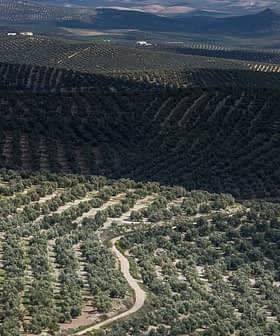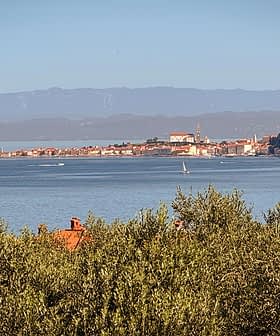A Very Good Year for Turkish Olive Oil Exports
A good year for olive growers combined with relatively poor years in the Mediterranean and a depreciating Lira, see Turkish exports on pace for a five-year high.
 NYIOOC Award-winning brands from Turkey
NYIOOC Award-winning brands from TurkeyTurkey’s olive oil sector is experiencing growth, with exporters optimistic about the future as they aim to reach $400 million in exports by the end of the season, thanks to factors like poor harvests in other Mediterranean countries and the devaluation of the Turkish lira. The country has already seen a 43 percent increase in exports compared to last year, with packaged olive oil exports up by 80 percent, indicating a shift towards consumer markets for Turkish olive oil.
As Turkey’s olive oil sector continues to grow, exporters in the world’s fifth largest olive oil producing nation are feeling bullish about the future.
We believe the current state of the currency rates will have an even more positive effect for increasing the demand on Turkish olive oils.
“We have exceeded last year’s export figures in the first ten months of this season in olive oil sales abroad,” Davut Er, the deputy chair of the Aegean Olive and Olive Oil Exporters Association (EZZIB, as it is known by its Turkish initials), told local media.
Turkey has already generated $341 million from exports in 2018. “We aim to reach $400 million in exports by the end of this season,” Er said.
A combination of factors from poor harvests in other Mediterranean countries to the rapid devaluation of the Turkish lira has opened new markets for Turkish olive oils and made exporting more affordable.
© Olive Oil Times | Data source: International Olive Council
* = projected
According to the International Olive Council (IOC), European Union producers are expected to have the lowest yield this year since the 2007/08 harvest season. This opens the door for Turkish producers to expand their presence in many of the 122 countries to which they already export olive oil. See Also:The best olive oils from Turkey
“Some years production may decrease [to below] average levels, especially in main producer countries such as Spain and Italy,” Er told Olive Oil Times. “During these years, exports for countries such as Turkey may increase if they have a good crop.”
By all measures, Turkey did have a good crop last year. Olive oil production for the 2017/18 harvest season is on pace for its second consecutive record year, according to the IOC.
In the first 10 months of this harvest season, Turkey has exported 56,521 tonnes, which is a 43 percent increase compared to the same period last year. Er expects that Turkey will have exported 65,000 tonnes by the end of the harvest season, which would be the highest total in the past five years. (The IOC projects it to be 90,000 tons.)
And the effects of the increase of these exports are being felt by some of the country’s smallest producers.
“We have sold out of our olive oils as of August 31,” Bahar Alan, the founder of Nova Vera, told Olive Oil Times. She sold almost all of his packaged olive oil to the United States and Japan, but still has orders that he cannot fill.
“We still have demand from Dubai, China and Germany for the next season’s olive oils as packaged olive oil sales,” she said.
Alan attributes some of this success to the depreciation of the Turkish lira, which has been steadily losing value this year and experienced a 20 percent drop in value at the beginning of August, from which it has not recovered.
“We believe the current state of the currency rates will have an even more positive effect for increasing the demand on Turkish olive oils,” she said.
Alan’s story is not an outlier in Turkey. Overall, packaged olive oil exports have increased by 80 percent compared with last year. They now make up 32 percent of overall olive oil exports, up from nearly 26 percent last year. Bulk olive oil exports grew as well, but to Er it is clear in which direction the future lies for Turkish olive oil.
“Turkey has an important capacity to export packed olives and olive oil,” he said. “Our main aim is to increase packaged olive oil exports to consumer markets.”









